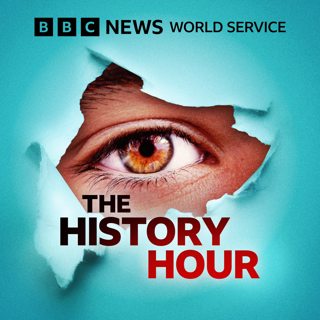
Surviving Cambodia's 'Killing Fields'
Life under the Khmer Rouge in the 1970s, the Germans kidnapped by the Contras in Nicaragua in the 80s, plus how Aboriginal women took on the Australian government against nuclear waste, Anita Hill's stand against the promotion of Judge Clarence Thomas to the US Supreme Court and the birth of the Sony Walkman.(PHOTO: CHOEUNG EK, CAMBODIA - 1993/02/01: Skulls are piled up at a monument situated outside Phnom Penh to serve as a constant reminder of the genocide under the Khmer Rouge during the Pol Pot years.. (Photo by Peter Charlesworth/LightRocket via Getty Images)
6 Jul 201950min

The Stonewall riot
The riot that inspired the modern gay rights movement; Saddam Hussein's 1980s genocidal campaign against Iraq's Kurds; notorious British serial killers, Fred and Rose West; 50 years of fighting for fat people in America; and Joseph Heller on his seminal work, Catch-22.Picture: the Stonewall Inn today (Getty Images)
29 Jun 201949min

The assassination of Medgar Evers
An African-American civil rights hero, a Chinese online star, the tragic icon of Iran's reform movement and archive recordings of the psychoanalyst CG Jung. Plus the great violinist Yehudi Menuhin's love of yoga.Photo:Roy Wilkins and Medgar Evers Being Arrested on 1st June 1963 in Jackson, Mississippi. Credit: Getty Images
22 Jun 201950min

The first anti-psychotic drug
How a 1950s drug helped revolutionise the treatment of mental illness. Also, how hundreds of thousands of Kosovans fled when NATO bombed former Yugoslavia. Plus, a monumental public artwork in post-Cold War Berlin, Chinese-American relations after WW2, and a trailblazing same sex wedding in the 1970s.Photo: Nurses prepare a patient for electric shock treatment in a psychiatric hospital. (Hulton-Deutsch Collection/CORBIS/Getty Images)
14 Jun 201949min

D-Day
Eyewitness accounts of the Allied invasion of Nazi occupied Europe on D-day, 6th June 1944. We also hear how the BBC reported events on that momentous day. Plus Vikings in England, the Gurkhas fight for justice and discovering the fate of 'The Little Prince'Photo: The photo titled 'The Jaws of Death' shows a landing craft disembarking US troops on Omaha beach, 6th June 1944 ( Robert Sargent / US COAST GUARD)
8 Jun 201950min

Tiananmen Square
A student protester's perspective on the Tiananmen Square massacre, the first social network on the internet, the surprisingly controversial early years of Sesame Street, the overthrow of Emperor Bokassa in the CAR, and the death of India's first prime minister, Jawaharlal Nehru.Picture: Dan Wang speaking in Tiananmen Square (credit: Peter Turnley/Corbis/Getty Images)
1 Jun 201950min

Fighting Uganda's anti-gay laws
In 2009 Ugandan MPs tried to introduce new laws against homosexuality that would include life imprisonment and even the death penalty. We speak to Victor Mukasa about his story of fighting for LGBT rights in Uganda, first as a lesbian woman and then as a trans man. Also, the early days of the environmental organisation Greenpeace, walking the Great Wall of China and fighting acid attacks on women in Bangladesh.(Photo: Ugandan LGBT Activist Victor Mukasa May 2019. BBC)
25 Mai 201950min

The final days of Sri Lanka's civil war
In May 2009 the Sri Lankan army defeated the Tamil Tigers, ending a brutal 25-year civil war; also, the economists who predicted the 2008 global economic crash, plus the Nazis' stolen children, a victim of China's One Child policy, and the building of the great Karakoram Highway.Photo: Tamil civilians standing on the roadside after crossing to a government-controlled area 2kms from the front-line, 2009 (Getty Images)
18 Mai 201950min






















